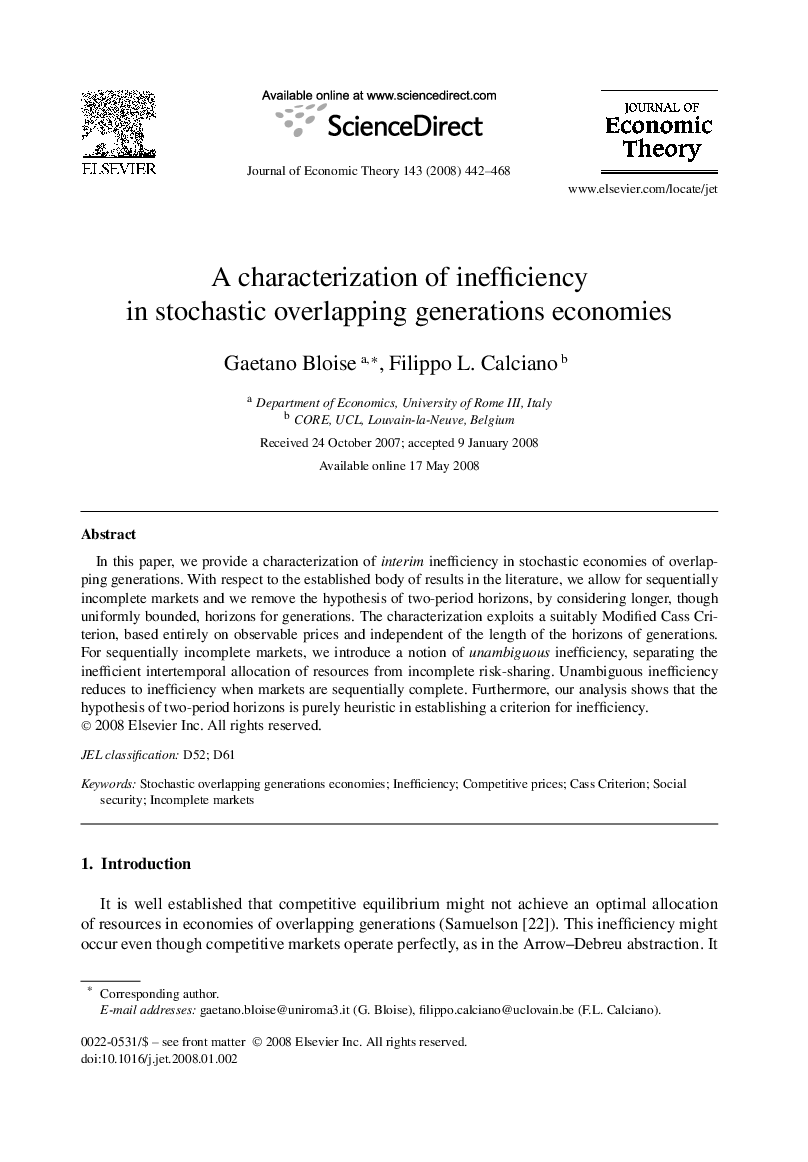| Article ID | Journal | Published Year | Pages | File Type |
|---|---|---|---|---|
| 957465 | Journal of Economic Theory | 2008 | 27 Pages |
In this paper, we provide a characterization of interim inefficiency in stochastic economies of overlapping generations. With respect to the established body of results in the literature, we allow for sequentially incomplete markets and we remove the hypothesis of two-period horizons, by considering longer, though uniformly bounded, horizons for generations. The characterization exploits a suitably Modified Cass Criterion, based entirely on observable prices and independent of the length of the horizons of generations. For sequentially incomplete markets, we introduce a notion of unambiguous inefficiency, separating the inefficient intertemporal allocation of resources from incomplete risk-sharing. Unambiguous inefficiency reduces to inefficiency when markets are sequentially complete. Furthermore, our analysis shows that the hypothesis of two-period horizons is purely heuristic in establishing a criterion for inefficiency.
